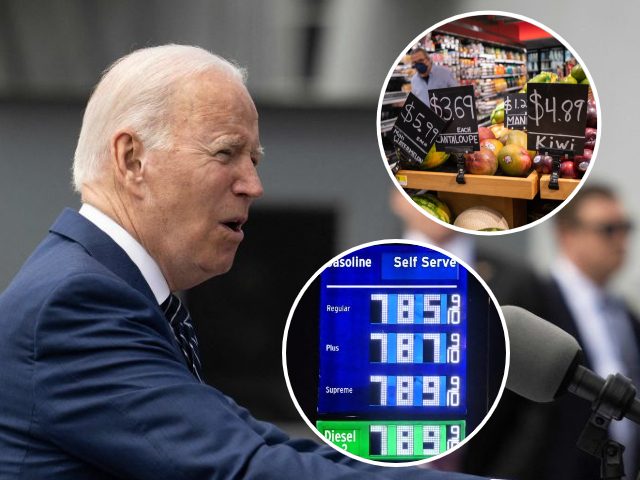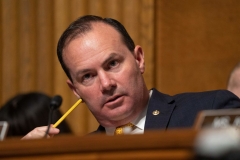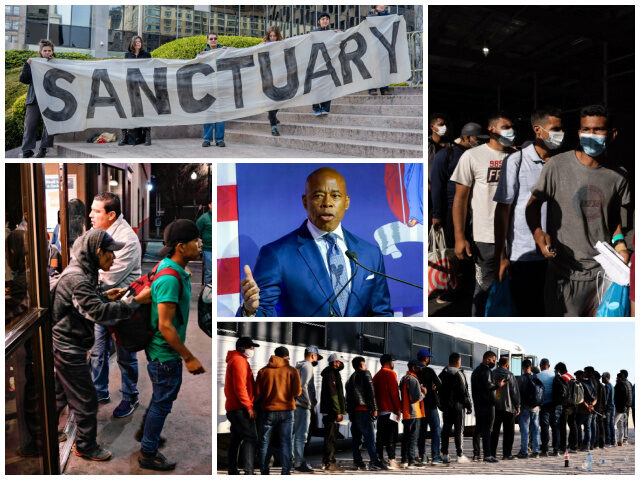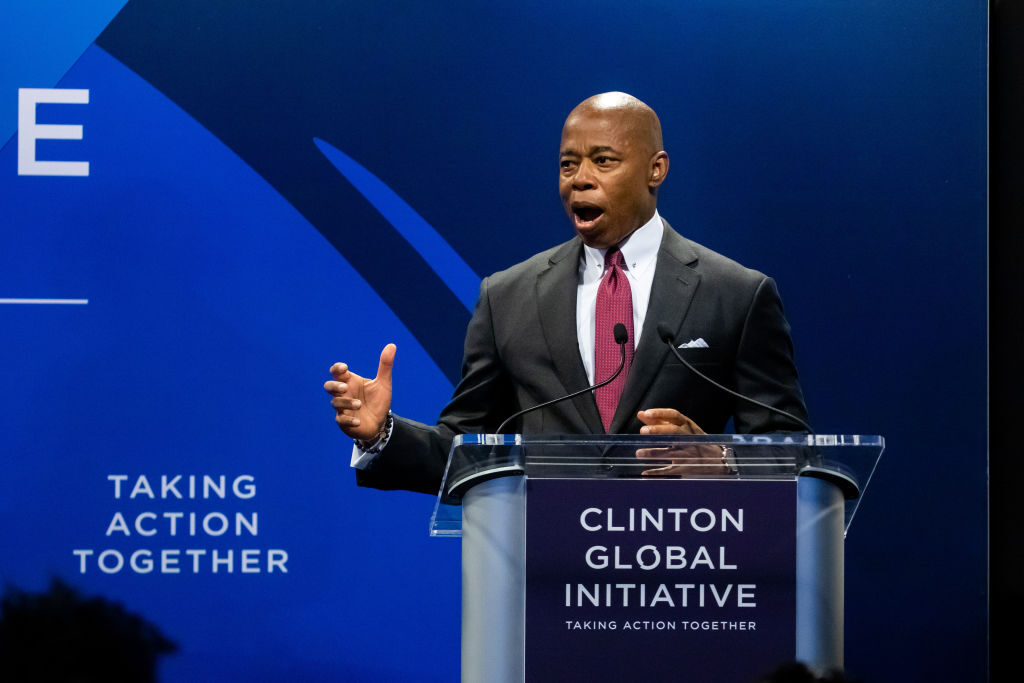VIDEOS:
"Tomorrow The Fed Starts A Mortgage Crisis Where Banks & Government Foreclose Homes" - Peter Schiff
https://www.youtube.com/watch?v=TZb9WA8NTus
Hassett warns of 'scary' October for US economy
Poll: 71% of Workers Are Poorer Under Biden’s Inflation, up from February’s 58%

Seventy-one percent of employees are poorer under the weight of President Joe Biden’s inflation, up from 58 percent in February, a Bank of America-sponsored survey shows.
The poll, revealed by CNN on Tuesday, sampled individuals in July who have 401(k) plans. Half of those sampled said they had taken measures to “cope” with Biden’s soaring prices in the last six months. Sixty-two percent said they are “stressed” about their personal finances despite being employees.
From year to date, consumer prices soared 8.3 percent in August, the Bureau of Labor Statistics revealed in September. In June, inflation reached a 40-year-high at 9.1 percent, just above August’s numbers. The price of food at home jumped 0.7 percent compared with the previous month. Over the past 12 months, grocery prices have gone up 13.5 percent.
Biden’s inflation, fueled by massive spending and arbitrarily placed constraints on the economy during the pandemic, is not just impacting low-income families. The poll found only 44 percent of employees believe they are financially well off under Biden’s leadership, down from 57 percent in February.
According to polling over the weekend, 61 percent say Biden’s economy is in a recession. Sixty-seven percent believe it is Biden’s fault the United States is on the wrong track.
iden’s sagging economy, the number one issue among voters, will impact the midterm elections. It still remains likely Republicans win back the House, but the Senate is a tossup.
Senate races in Pennsylvania, Arizona, Wisconsin, and Nevada have tightened within the margin of error. In Ohio, Georgia, North Carolina, and Florida, Republican candidates still hold leads. New Hampshire appears to be the only swing state where Democrats have the largest advantage over Republicans.
Follow Wendell Husebø on Twitter @WendellHusebø. He is the author of Politics of Slave Morality.
Sen. Mike Lee: ‘The Average Utah Family Now Spends an Additional $925 a Month More on Their Basic Monthly Household Expenses’

(CNSNews.com) - The annual inflation rate for the U.S. is 8.3 percent for the 12 months ending August 2022, but if you measure inflation from the day President Biden took office, it’s between 13 and 15 percent, Sen. Mike Lee (R-Utah) said Sunday.
Lee told Fox News’ “Sunday Morning Futures” that inflation is “actually much more bleak” than what the numbers suggest.
“Throughout most of the country if you measure inflation from the day Joe Biden took office, the very beginning of his presidency, and you measure it up until now, the number is actually between 13 and 15%. In Utah, it's more like 15%,” he said.
“The average Utah family now spends an additional $925 a month more on their basic monthly household expenses than they did on day one of Joe Biden's presidency, and so this is hurting American families badly,” the senator said.
“As to what we can do to stop it, to channel the words of Milton Friedman, Washington just needs to stop spending money. Milton Friedman beautifully when he said in the United States of America, inflation has one source and it’s Congress spending too much money,” Lee said.
On budget negotiations to fund the federal government, the senator predicted that Congress will “get right up to the moment of a decision and a whole lot of people will sign on to a bill that they’ve never seen, that they’ve never read.”
“It may have all sorts of extraneous funding attached to it with the continuing resolution, but they will say because we are this close to the deadline we have to pass at this time. What is sad, Maria, is that this is what happens every single time. It’s as if Lucy is moving the football every time, but we’re convinced she's not going to,” Lee said.
Congress “should be debating, discussing and having the opportunity to amend these spending bills for weeks if not months in advance of the spending bill deadline,” he said, “but instead the Senate and the House leadership conspired to bring it up at the last possible minute, thus assuring that the American people's priorities are sacrificed.”
“We keep getting hoodwinked because too often we agree in advance that we’ll vote for whatever has happened. This process will continue until it no longer works, and it will not stop working until you have Republicans drawing some lines in the sand,” the senator said.
“Look, this is one of the reasons why I wrote a letter that’s been signed by 14 Republican senators so far. I’m inviting more to join us, calling for more or less what you described a moment ago, which is a clean continuing resolution that will take us into the next Congress and thus allow Republicans to set the agenda, Republicans to reclaim border security, and so that we can avoid a massive omnibus spending frenzy during the lame-duck session of Congress - a period of time in which we hope to be at a stage where we’ve just retaken the majority in the House and I hope in the Senate as well,” he said.
If Republicans regain control of the Senate, they can stop Democratic priorities like hiring 87,000 new IRS agents by withholding federal funds, Lee pointed out.
“In future years we could withhold spending, withhold federal funds to implement those projects. They require funding, and I think it is important that we utilize any negotiation power that we might acquire in this election to do precisely that. Look, the American people don't want 87,000 new IRS agents,” the senator said.
“And while the American people are concerned certainly about the situation in Ukraine, they don't want us to ignore the border problems we’re solving here, and meanwhile, obsess over border problems in other countries while doing nothing right here at home,” he said.
15 Reasons Why Your Grocery Bill Is Sky-high Right Now
Inflated Food Prices Forcing American Families to Change Eating Habits

Surging food prices due to historic inflation are forcing American families to adjust their eating habits by choosing cheaper options.
Cutting back on buying meats, shopping at high-end grocery stores, and dining out are among the many ways consumers are trying to save extra cash to avoid financial instability.
One Massachusetts father, Rick Whitman, told CNN that his family was enjoying eating at home more frequently because of how expensive eating out can be but is now grappling with the reality that eating at home is also becoming pricey.
Whitman noted he was spending 25 percent more for family groceries, forcing him to shop at cheaper grocery stores, such as Costco and local chain Market Basket, instead of Whole Foods or Stop & Shop.
Food prices have not only increased for the Whitman family but for the nation, as the consumer price index shows grocery store prices have increased by 13.5 percent since last year under the Biden administration, per the Bureau of Labor Statistics. Overall, food prices have increased by 11.4 percent.
Polling has shown that 63 percent of American families with children are changing their eating habits, compared to 31 percent that are not, Breitbart News recently reported.
Seventy-two percent of families with children recorded paying more at the grocery store for items such as eggs, milk, butter, and bacon.
Another family also highlighted that current food prices had forced them to significantly adjust their eating habits by cutting down on dinner gatherings they used to enjoy hosting at their home.
“Before, we at least found joy in being home and having friends and family over, cooking and sitting around the table and just being content,” said Carol Ehrman from Montana. “Now, I’m not entertaining at all. It’s really sad.”
She noted that her family is trying to save money by cutting back on meats and is buying bulk foods more often.
Even if changing habits requires only giving up certain simple pleasures, it can still be jarring to any family, William Masters, a nutrition science and policy professor at Tufts University, told CNN.
“Not being able to buy the foods that people are used to — that your children are asking for, that your family wants — that’s a really hard thing,” said Masters.
You can follow Ethan Letkeman on Twitter at @EthanLetkeman.
New York Wants $500 Million from Americans to House New Migrant Workforce

New York’s Mayor Eric Adams wants the rest of America to pay $500 million for housing the many thousands of foreign workers and renters he is providing to New York’s business leaders.
The New York Post broke the story:
City Hall privately asked the White House for the emergency cash midway through the summer, saying it would cover just one year’s worth of spending on the migrants who Adams has said are straining the city’s shelter system to its “breaking point,” The Post has learned.
The request comes as House Democratic legislators, including Rep. Adriano Espaillat (D-NY), are pleading for another $500 million for “New York City and other safe-haven cities.”
The cities’ funding requests show how Washington’s migration policies provide coastal investors, CEOs, and landlords with an imported river of low-wage workers and high-occupancy renters.
The federal migration policies also provide federal aid for the penniless migrants in a lower-wage, higher-rent economy.
So the flood of migrants and government aid helps business elites by spiking housing prices and cutting ordinary Americans’ pocketbook wages and disposable income.

Eric Adams, mayor of New York, speaks during the Clinton Global Initiative (CGI) annual meeting in New York, US, on Tuesday, Sept. 20, 2022. (Michael Nagle/Bloomberg via Getty Images)
The economic and pocketbook impact of migration is made clear by California. That state’s huge inflow has increased California’s population by at least 33 percent and has sharply increased competition for housing amid deepening economic inequality, drug addiction, and homelessness.
In California, the median price of a house is $725,000, according to NeighborhoodScout.com. That price is three-and-a-half times as much as in 2020, the site said.
The same process is underway in New York. For example, rents are also very high in New York partly because the local elite welcomes, protects, and subsidizes illegal migrants at the expense of ordinary New Yorkers.
This self-serving support for Extraction Migration is rationalized by elites who tout the 1950s narrative that the United States is somehow a “Nation of Immigrants.”
Federally-supplied migration helps to shrink corporate investment in worker productivity nationwide and to also steer coastal investors away from hiring young Americans in heartland states.
Biden’s migration has boosted the number of migrants who have filed asylum claims to stay in the United States by up to 750,000, according to the Washington Post.
The migrants are concentrated in a few coastal states.
Roughly 408,000 migrants — or 54 percent — of the 750,000 are in the four states of California, New York, Texas, and Florida, even though those states comprise only 33 percent of the population, according to the September 26 report in the Washington Post.
“The largest remaining groups are mostly awaiting hearings in courts in blue states such as New Jersey, Massachusetts, and Maryland, though some are waiting for hearings at courts in red states,” the Post added.
The government’s legal visa-worker programs are also skewed towards coastal states, further reducing the incentive for Silicon Valley to invest in heartland states.
GOP legislators have begun to recognize how government-funded migration to the coastal states aids wealthy people in those states and also redirects private investment that would otherwise be shared with people in their states. For example, Bloomberg Government reported on September 21.
[The] Biden administration should be looking for ways to deter migration “instead of asking for more money for more people to come,” Sen. Shelley Moore Capito (W.Va.), the top Republican overseeing DHS’s budget, said Tuesday. “So yeah, I got a problem with that.”
But funneling money to border needs is a point of frustration for many Republicans, who instead want President Joe Biden to return to many of the immigration policies of his predecessor: continuing border wall construction, forcing asylum seekers to wait in Mexico while their claims are reviewed, and applying pandemic-related restrictions more aggressively.
“It’s not the answer to our immigration problem, it’s not just more money,” Rob Portman (Ohio), top Republican on the Senate panel that oversees DHS, said of the emergency funding push.
Capito’s West Virginia gets little private sector investment, partly because the federal pipelines feed foreign workers into California and New York.
But the GOP opposition is well-timed.
Biden’s deputies are running short of the cash they need to operate their northside transportation networks used to quietly transport economic migrants from the border to workplaces and apartments in American cities.
On September 15, 10 Democratic senators asked Capito and other legislators on the appropriations committees to keep the migrant pipeline working:
Funds appropriated through FY 22 [which ends October 1] are quickly being drawn down and in the absence of full-year funding, grantees of the program are currently grappling with how to continue to provide critical services to this vulnerable population. Communities and organizations are on the front-lines of assisting migrants coming to our border and resources are being stretched thin as they take on the role of performing a federal government function. This funding is vitally important as more cities in the United States receive refugees and asylum seekers.
Any extra federal spending would be smuggled to the various cities via an increase in funding for the Department of Homeland Security (DHS), the Department of Health and Human Services, and other agencies. Much of the money flows through the DHS to progressive groups via contracts with the Federal Emergency Management Agency.
The northside smuggling network — and the record number of migrant deaths — has largely been ignored by the corporate media.
That corporate policy leaves many Americans in the dark about the scale of Biden’s mass migration — but also awash in the media hand-wringing about the claimed trauma suffered by migrants who were flown to the elite playground of Martha’s Vinyard.
If the GOP holds fast, they will likely win concessions from the Democrats’ pro-migration leaders, including Majority Leader Sen. Chuck Schumer (D-NY).
However, those concessions may benefit the GOP’s business donors, not the millions of Americans who are being sidelined by the establishment’s preference for uncomplaining immigrant workers and renters.
Many progressives compete to display their support for the migration that makes them and their children poorer: “Blue areas are already dealing with a large proportion of migrants who are seeking asylum and have for a long time,” said the author of the Washington Post article who posted the numbers showing the skewed distribution of migrants.
But few progressives want to recognize the macroeconomics of migration.
Congress Unveils Stop-Gap Spending Bill with $12+ Billion in Ukraine Aid

Congressional appropriators released a stop-gap bill Monday night that would fund the government through mid-December, specifically earmarking $12.3 billion in aid for Ukraine and $3 billion for Afghan resettlement programs.
The short-term spending bill, otherwise known as a continuing resolution (CR), would fund the government until December 16. This would give Congress more time to hash out a longer-term deal to continue funding the government.
The federal government will face a shutdown if Congress fails to pass the CR by the end of Friday.
Along with funding the government at similar spending levels, the CR would provide:
- $12.3 billion in economic and military aid to Ukraine
- $1 billion for Low-Income Home Energy Assistance (LIHEAP)
- $2.5 billion in funding for New Mexico to recover from the Hermit’s Peak/Calf Canyon fire
- $20 million for water infrastructure in Jackson, Mississippi
- a five-year reauthorization of FDA user fees
- $3 billion for the State Department to facilitate Afghan resettlement, and the FBI would receive $15 million to vet Afghan refugees
- $35 million to prepare and respond to “potential and radiological incidents in Ukraine”
The CR also includes Sen. Joe Manchin’s (D-WV) Energy Independence and Security Act, which Senate Majority Leader Chuck Schumer (D-NY) promised he would include as part of Manchin’s support for the Inflation Reduction Act.
If passed, the legislation would dramatically reduce the time needed for the federal government to do environmental reviews.
However, Manchin’s legislation may face significant hurdles as both Republicans and Democrats oppose his legislation. Republicans prefer Sen. Shelley Moore Capito’s (R-WV) alternative bill, while Sen. Bernie Sanders (I-VT) and other leftists worry about the environmental implications of the bill.
Sen. Richard Shelby (R-AL), the ranking member on the Senate Appropriations Committee, said Monday night, “We have made significant progress toward a Continuing Resolution that is as clean as possible. But, if the Democrats insist on including permitting reform, I will oppose it.”
The Senate will hold a cloture vote on Tuesday night to advance the legislative vehicle for the CR. If the vote fails, then it remains possible that Congress could pass an even shorter “bridge” funding bill to give Congress more time to resolve lawmakers’ differences about the bill.
Sean Moran is a congressional reporter for Breitbart News. Follow him on Twitter @SeanMoran3
Obama Claims Racism to Suppress American Opposition to Biden’s Deadly Migration

Americans oppose President Joe Biden’s lawless and wage-cutting mass migration because they are racist, not because of their economic worries, according to former President Barack Obama.
“Right now, the biggest fuel behind the Republican agenda is related to immigration and the fear that somehow America’s character is going to be changed if, people of darker shades, there are too many of them here,” Obama told a meeting of Hispanic realtors on September 25 in San Diego, California.
Obama used his divide-and-rule claims of racism to hide the public opposition to migration’s economic impact, according to his comments posted in a September 25 report by the San Diego Union-Tribune:
I wish I could be more euphemistic about it except [they’re] not that subtle about it — they’re just kind of saying it,” Obama said. “You hear it on hard-right media, you hear it from candidates and politicians, you hear things like ‘great replacement theory’ — I mean, this is not subtle. Unless we’re able to return to a more inclusive vision inside the Republican Party, it’s going to be hard to get a bill done.
Obama also argued that public opposition to mass migration is more dangerous than government support for the nation-changing migration that has killed thousands of migrants and many more Americans:
When you have that kind of rhetoric floating around out there, we’ve seen in history that is dangerous rhetoric. It’s dangerous wherever it appears and it’s dangerous here in the United States.
Since January 2021, Biden and his pro-migration border chief have extracted roughly 3 million migrants from poor countries into the U.S. economy via the southern border, likely in violation of federal law.
They have also pulled more than 2 million legal immigrants, visa workers, and white-collar illegals via airports. That massive government-engineered migration has delivered at least one migrant for every two births since January 2021.
In 2013 and 2014, Obama and Biden used claims of racism to stigmatize Americans’ popular opposition to mass migration as they were trying to push the doomed “Gang of Eight” cheap-labor bill through Congress.
But that incendiary smear is contradicted by numerous polls which show the public wants to welcome some immigration — but also declares deep and broad public opposition to labor migration and the inflow of temporary contract workers into the good jobs U.S. graduates need to raise families.
This “Third Rail” opposition is growing, anti-establishment, multiracial, cross-sex, non-racist, class-based, bipartisan, rational, persistent, and recognizes the solidarity that American citizens owe to one another.
For example, almost half of Hispanics, blacks, and Asians believe Biden’s global invite has created an “invasion” of migrants, says a July poll by Ipsos. The “invasion” view is mainstream: 58 percent of white Americans — and 40 percent of Democrats — say Biden’s global invite is an invasion, according to data released on August 19 by Ipsos.
The public’s opposition to mass migration is rational because migration imposes vast economic and civic burdens on ordinary Americans while it boosts wealthy and powerful Americans.
For example, migration spikes the cost of housing. That is great for realtors but is a huge burden for young couples seeking to buy a house for their families.
Immigration has increased California’s population by at least 33 percent, sharply increasing competition for good and poor housing amid fast-growing wealth inequality, drug addiction, and homelessness. In California, the median price of a house is $725,000, according to NeighborhoodScout.com. That price is three-and-a-half times as much as in 2020, the site says.
This impact of migration on housing prices is rarely mentioned in the corporate media. But pro-migration groups tout migration as a boon for real estate investors. For example, a 2017 report by the CATO Institute says the cost of illegal immigration could be reduced by cutting spending on border enforcement: “If the typical illegal immigrant increases the value of all housing unit prices by 11.5 cents, then illegal immigrants increase nationwide housing values by about $1 trillion.”
Nationwide, “in 2022, a full-time worker needs to earn an hourly wage of $25.82 on average to afford a modest, two-bedroom rental home,” according to the National Low Income Housing Coalition. Americans need to earn “$21.25 [an hour] to afford a modest, one-bedroom rental home,” the group added.
Similarly, migration flatlines Americans’ wages by minimizing pressure on companies to offer competitive wages or to invest in the productivity-boosting machinery that is needed to earn decent wages in a global economy. For example, the Bureau of Labor Statistics reported that wages and salaries rose by 5.1 percent in the 12 months up to June 2022. But median wages declined because inflation rose by 8.1 percent in the 12 months up to August.
Federal immigration policy also pulls wealth from heartland states toward coastal states. This happens because the coastal investors in New York and California who might be tempted to hire employees in distant and inconvenient heartland states know that the federal government’s Extraction Migration strategy delivers a preferable supply of grateful, reliable, and cheap workers to downtown bus stations each day.
The mass migration has also given employers an easy excuse to not hire marginalized Americans, including those who are on drugs.
The mass inflow has also given wealthy progressives a dependent population to display their charity toward — while they carefully sideline many millions of poor Americans who might vote against progressive power. This elite’s growing disregard for ordinary Americans comes amid the rising “Deaths of Despair” and the death of more than 100,000 Americans in 2021 from drug overdoses.
This dismissal of Americans is often framed as the claim that the American economy is dependent on immigrants, despite the many millions of Americans who have been sidelined by government policy. But many progressives also praise immigration because it helps to replace Americans and their society.
“The phenomenon of [population] replacement, writ large, is America, and has been from the beginning, sometimes by force, mostly by choice,” according to Bret Stephens, a New York Times columnist. “What the far right calls ‘replacement’ is better described as renewal,” he wrote in May.
Democrats and their progressive supporters are also trying to shift the blame away from Biden’s government toward the businesses that manage the economic side of the strategy.
Donor-backed Republican leaders try to hide the pocketbook pain of migration by redirecting public opposition toward the crime caused by illegal migration.
But that blame-shifting is difficult because of the public’s natural solidarity with their fellow Americans:
Report – Americans Lost over $4K in Annual Income Thanks to President Biden: ‘Financial Catastrophe’

Americans are bleeding money and struggling to make ends meet, thanks to President Joe Biden (D).
“New economic numbers show that the average American has lost the equivalent of $4,200 in annual income under the Biden administration because of inflation and higher interest rates,” the Heritage Foundation said in a press release Thursday.
The foundation continued:
Heritage experts calculated this shocking number based on different sets of data. Consumer prices have risen 12.7% since January 2021, significantly faster than wages, so that the average American worker has lost $3,000 in annual purchasing power. Further, as the Federal Reserve implements tighter monetary policy to reduce inflation, interest rates are rising. Higher rates have in turn increased borrowing costs on mortgages, vehicle loans, credit cards, and more. The higher interest rates and borrowing costs have effectively reduced the average American’s purchasing power another $1,200 on an annualized basis.
Meanwhile, more Americans are shouldering credit card debt as inflation continues hurting families, Breitbart News reported Wednesday.
“In a recent survey from CreditCards.com commissioned by YouGov, 60 percent of Americans have been carrying monthly credit card debt for at least 12 months – a ten percent increase from 2021,” the outlet said.
During a recent interview, Sen. Rand Paul (R-KY) reacted to an estimate that projects households will be forced to spend over $11,000 more this year to maintain the same standard of living:
What we know for sure is that now we’ve lost more to inflation than they gave us in the form of free money. The inflation came from the free checks that were passed out. They shut the economy down. They sent free checks to everyone. And they said, oh, this will make up for it. But guess what? When people add up how much they’re paying for gas and the grocery store, it’s canceled out all the free money. And I don’t think the inflation’s over by a long shot.
EJ Antoni, research fellow in regional economics with the Heritage Foundation’s Center for Data Analysis, spoke about the financial burden placed on Americans.
“This financial catastrophe for American families is the direct result of a president and Congress addicted to spending our money, combined with a Federal Reserve compliantly enabling this addiction by printing more dollars,” he said.
In addition, American voters trust the Republican Party over Democrats by a wide margin when it comes to the economy as the midterm elections approach, according to a recent Morning Consult poll.
No comments:
Post a Comment